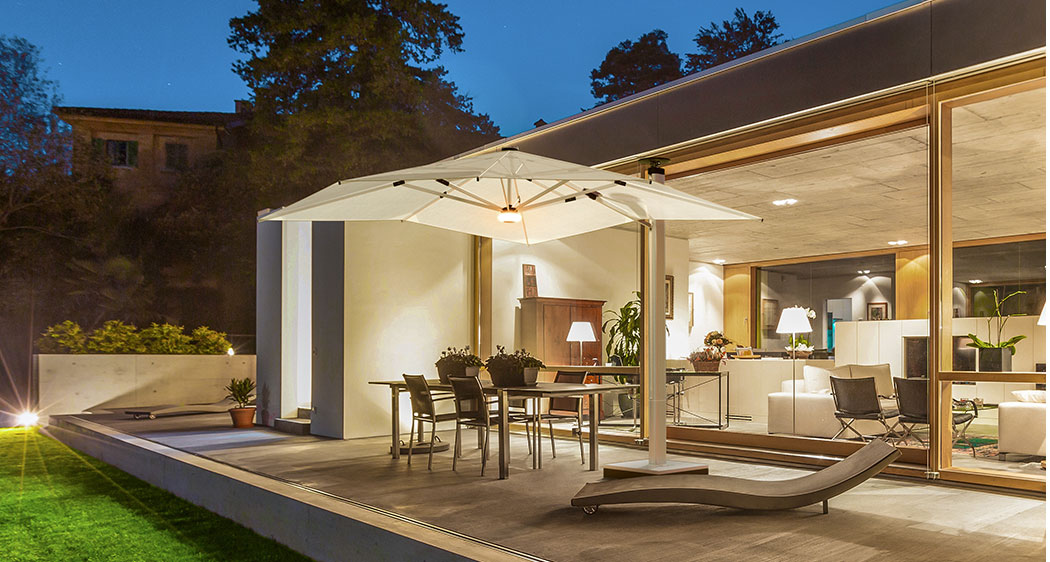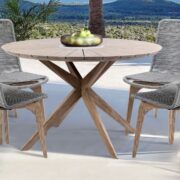Northwest Metalcraft Fireplace & Patio started out when a gift turned into an opportunity.
In 1947, newlyweds Ed and Irene Mayer moved to the family farm in Arlington Heights, Illinois, where Ed started an ornamental iron business.
Irene wanted a lawn set, so Ed bought one for her in nearby Chicago, took it off his truck and put it in the yard. Someone passing by asked if the set was for sale — and Ed said that it was, then promptly sold it for more than he had paid. And the next week, Ed got in his truck and bought four more lawn sets — sold them — bought more and sold them, too.
Dan Mayer, Ed and Irene’s son, said his mom’s gift-turned-inventory became a business that has sustained his family for more than 75 years — and spread from outside Chicago to Michigan, Indiana and Wisconsin.
Northwest Metalcraft rode the wave of business from returning World War II veterans in the 1950s and 1960s, to include not only patio furniture, grills and outdoor kitchens, but also fireplaces so they would have something to sell their Chicagoland area customers year-round.

Dan Mayer
Mayer says he can remember when was selling sets of patio furniture for $299 and $399, then putting it into the truck and taking it to the customer. But these days, customers are less likely to come in and buy what’s there — and more likely to order what they want.
“It’s totally different, it’s more design-oriented,” says Mayer. “We still compete with Home Depot and Lowe’s, but our customers want better quality products, and they want something they can choose. They want the special-order stuff.”
Right now, the most important consideration is for retailers to have an assortment of goods and be present for the customers.
“The special-order business is back,” says Mayer. “It’s going to be lead times and assortment — those are the big things. A lot of people are lucky enough to have vendors in this market area. I carry some lines that nobody else has. People see it on the internet but (my customers) are happy that they don’t have to hassle with the internet, because they want to be able to talk with someone and get answers. If you buy it on Amazon, you talk to people who don’t know anything.”
Mayer says that ordering online means that you support trillionaires who don’t talk to the customer.
“If you walk into my business, you can talk to the president most any day,” says Mayer. “Can you talk with Jeff Bezos? Hell, no. That’s the one thing that we have over internet giants — you can call us and talk to us. We are knowledgeable. And some of our installers have been working for us for 50 years.”
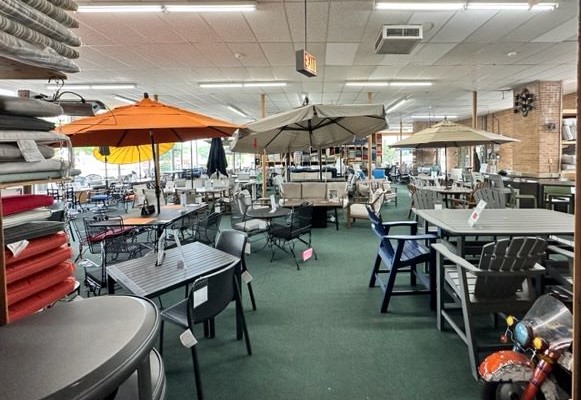
This season, sales have slowed somewhat and the store is a bit heavy on inventory, which means Mayer is cutting into his profit margin to work through it. But out in the marketplace, he has noticed that other stores, even big boxes, are slashing and burning prices.
“You’ve got to still pay employees and you have to pay for delivery,” says Mayer. “If you give the stuff away, it doesn’t make any sense. Usually, with the big boxes, by the Fourth of July, they are done. Now they are in the middle of back to school and they still have furniture out there.”
Other retail challenges these days have been the transition back to a sense of normalcy post-Covid, but with a new wrinkle: Vendors are now increasingly selling to designers directly — and at a cut-rate — instead of running stock through retailers.
“(Designers) come into our place, use our showroom and then they order it from the vendor,” says Mayer. “How can we compete with that? You need to be true to your people and send those people to us. You can’t buy fireplace stuff like that and patio people should be the same way.
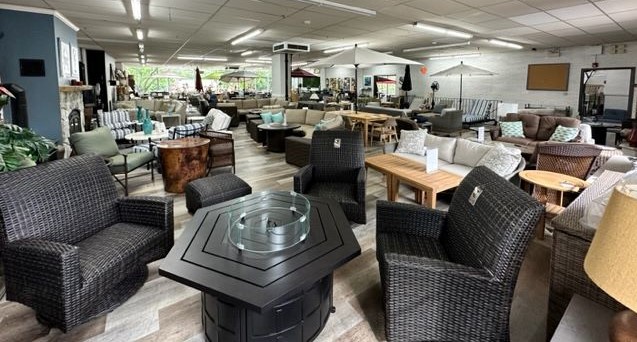
“We are constantly about ‘Why are you not working with us? You get more value from us – delivery, set-up and assembly.’ They should be supporting us because we are your bread and butter.”
Mayer says that full-line retailers represent another challenge.
“Indoor has been so bad lately; they are grabbing at anything to make revenue,” says Mayer. “We used to sell bars and bar stools and I got out of it years ago. I think it will harm (outdoor) to some extent. Price is No. 1 but they don’t think about the service. They will keep it for a couple of years and throw it out.”
To get the word out, Mayer says he uses a mix of radio, direct mail and social media. He says he has backed off from print but is considering some cable television advertising.
To set the store apart from its competition, Mayer concentrates on selection — and service. As an example, Northwest Metalcraft not only delivers and sets up furniture, but it has also carved out a niche in cleaning and servicing high-end grills and repairing broken sling chairs.
“We’ve got 50 or 60 fireplaces on display and we’ve got 100 furniture sets on display,” says Mayer. “You can see how it will look in your house. I don’t think anybody in the Chicagoland area has that many sets on display. People are staying at home more and so it’s not uncommon to get a six-figure order.”
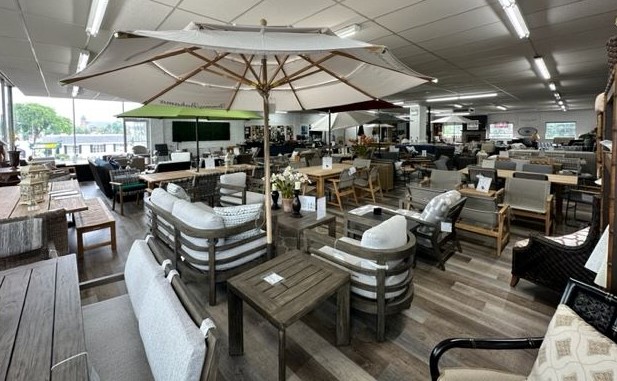
Selling it in person works much better than selling it online, Mayer says.
With online, “(we) match the price,” he says. “We beat the price. How fast do you want it? I have it in stock in 72 hours. With online, you can wait six or eight weeks, but we will be there in two or three days.”
Mayer recalls one memorable customer who wanted their furniture the next day, so they loaded it on the truck, drove an hour and a half into Wisconsin and delivered the $30,000 order.
“These sales guys are pretty good — they have a lot of moxie,” Mayer says. “This is not their first rodeo — they will dog you until you make the sale or until you say no.”
Any advice for struggling casual retailers?
“Don’t let customers run away,” says Mayer. “Try your best with everyone you can. Keep on them — that is what has been working the past two or three years. Don’t let them off the hook until they say they want to be off the hook. Go back and forth over time. If they ghost you, reach out. All they can say is no. You don’t want to let too many walk out the door. You want to close as many as you can.”




